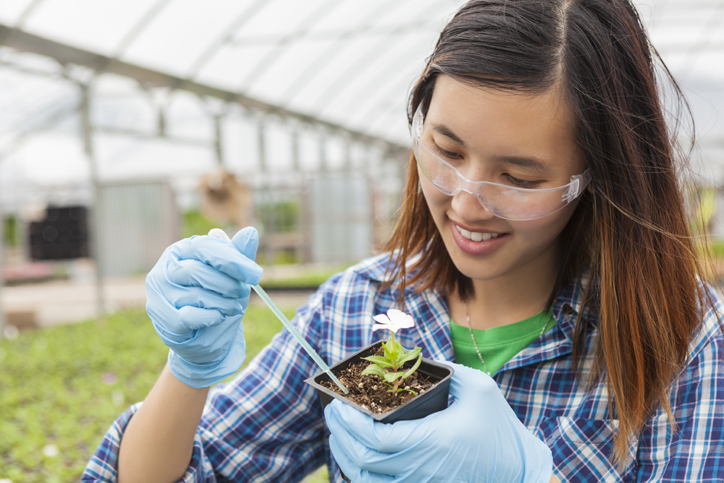09 OCTOBER 2019
AS and A Level Biology practicals – student and teacher tips

Biology
Download practical biology skills chapter
What are the practical skills required for biology and why do you need them?
Before they can embark on AS & A Level practical work with confidence, students should be familiar with the use of a typical school laboratory. This includes things such as balances, measuring cylinders, beakers, pipettes (or syringes), heating apparatus and thermometers. It is also important that students know how to work safely when carrying out practical work.
A knowledge of basic biochemical tests such as the tests for starch, glucose, protein and lipids is useful as these are often revisited at AS & A Level. There is also an assumption that students are aware of simple tests from Cambridge IGCSE™ chemistry, such as using universal indicator paper and testing for using limewater to test for carbon dioxide gas. These chemical tests are often used when carrying out practicals at AS and A Level biology.
Students should also understand how to plan valid experiments with standardised variables and repeats. They should also know how to draw results tables that display data effectively. Evaluating the design of simple experiments, such as recognising the level of accuracy of equipment is also a useful skill to reinforce before AS & A Level. All these skills help to provide a good foundation upon which to build.
What can be the main challenges for students carrying out practical work?
For biology experiments, results can often be unpredictable! Living organisms often do not respond in the ways that we expect. For example, a piece of pond weed in an investigation into the effect of light intensity, may not photosynthesise due to several reasons. Students need to be patient, accept that all results are valid and explore the reasons for results not being as expected. Many students think that getting unexpected results is essentially the mark of a bad experiment – in reality, getting the ‘wrong results’ can be a learning experience in itself. Students should also not be scared to ‘have a go’ and be encouraged to try again if something did not seem to work first time.
What can be the main challenge for teachers?
It can be difficult to get enough laboratory equipment or the correct reagents, although it may be possible to improvise or use alternative methods. Getting some practicals to work can be a challenge and it is certainly worthwhile for the teacher to try things before the class does. This means that concentrations of reagents, such as enzymes, can be adjusted to give the best outcome. As teachers, we can sometimes find it difficult not to do the practicals for students, especially when they seem to be struggling.
Sometimes we need to let them explore and find solutions – for example, letting them decide on the appropriate length of time to collect carbon dioxide gas from respiring yeast. We need to encourage and help but still allow them independence. Health and safety should also be the top priority for all teachers. We need to risk assess everything – it is our job to ensure the safety of our students.
What are your 5 top tips for students?
1) Be confident and keep trying even if a technique is difficult
2) Don’t expect results to always go the way you planned – remember that living organisms can be very different to one another
3) Work safely – always wear eye protection and risk assess everything
4) Be organised – keep all your equipment tidy on your bench
5) Enjoy practical work – it is your opportunity to apply your knowledge to the real thing
What are your 5 top tips for teachers?
1) Be safe – you need to watch the whole room while talking to individual students. Walk round the room so that you can see every group. Risk assess everything carefully.
2) Encourage independence and exploration, but help when needed
3) Demonstrate things clearly before letting your students try
4) Trial experiments, especially those that involve enzymes
5) Don’t shy away from practical work – it really does bring the subject to life and although it can be difficult to organise, it will help students see theory put into practice
By Matthew Parkin
Thank you for your feedback which will help us improve our service.
If you requested a response, we will make sure to get back to you shortly.
×